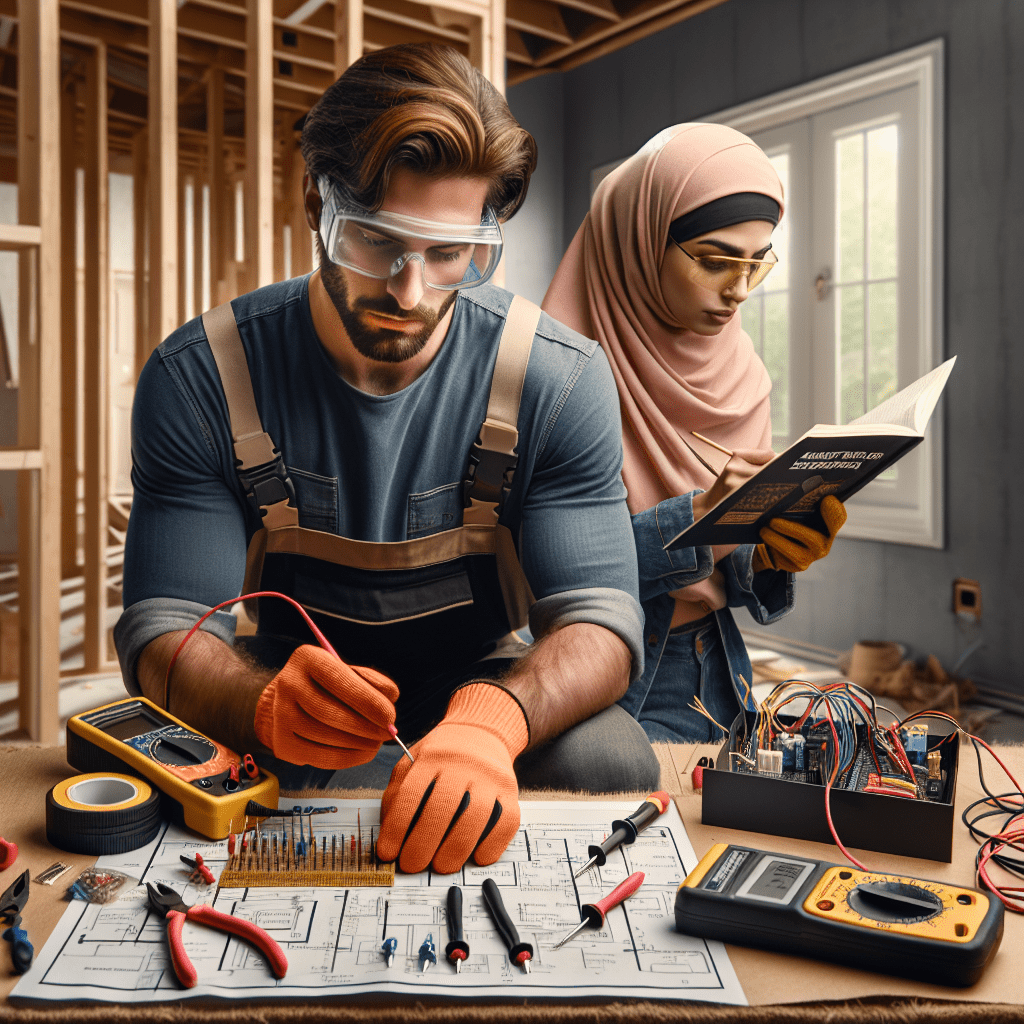Mastering DIY Electrical: Tips for Safely Tackling Home Projects
As a homeowner, there are countless projects that you can tackle yourself to save money and improve the look and functionality of your space. One of the most intimidating DIY tasks for many people is electrical work. However, with the right knowledge and precautions, you can master DIY electrical projects safely and effectively. In this article, we will provide you with tips and guidance on how to handle electrical tasks around your home.
1. Educate Yourself
Before you even think about picking up a tool, it’s important to educate yourself on the basics of electrical work. There are numerous resources available online, including tutorials, videos, and articles that can provide you with the knowledge you need to safely complete your project. Make sure to familiarize yourself with the different types of wires, circuits, and safety procedures before starting any work.
2. Invest in the Right Tools
Having the proper tools is essential for completing any electrical project. Basic tools that you will need include wire cutters, wire strippers, a voltage tester, and electrical tape. Investing in quality tools will not only make your job easier but also ensure your safety while working with electricity.
3. Turn Off the Power
Before starting any electrical project, always turn off the power to the circuit you will be working on. This can usually be done at the main breaker box in your home. Never assume that a circuit is safe to work on without checking to make sure the power is off first.
4. Test Before You Touch
Even after turning off the power, it’s crucial to test the circuits with a voltage tester to verify that there is no electricity flowing through them. This extra step can prevent serious injury or damage to your equipment.
5. Follow Code Regulations
Electrical work is highly regulated for safety reasons, so it’s important to follow local building codes and regulations when completing any project. This includes using the correct wire sizes, installing outlets at the proper height, and ensuring that all connections are secure.
6. Know When to Call a Professional
While DIY electrical work can save you money, there are some projects that are best left to the professionals. If you are unsure about a task or feel uncomfortable working with electricity, don’t hesitate to call a licensed electrician for help. Your safety is always the top priority.
Conclusion
By following these tips and precautions, you can safely and effectively tackle DIY electrical projects in your home. Remember to always prioritize safety, educate yourself on proper techniques, and use the right tools for the job. With a little practice and patience, you can become a master of DIY electrical work and save money on costly repairs or installations.
FAQs
Q: Can I do electrical work without any prior experience?
A: While it’s possible to learn how to do basic electrical tasks with the right education and tools, it’s always recommended to have some experience or guidance before starting a project.
Q: How do I know if I need a permit for my electrical project?
A: Permit requirements vary by location and the scope of the project. It’s best to check with your local building department to determine if a permit is needed for your specific project.
Q: What should I do if I encounter a problem while working on an electrical project?
A: If you run into any issues or are unsure about how to proceed, stop working immediately and consult a professional electrician for assistance. It’s better to be safe than sorry when it comes to electrical work.
Additional Tip:
Always double-check your work before turning the power back on. A simple mistake could lead to a dangerous situation, so take the time to ensure that your electrical connections are secure and properly installed.
#Mastering #DIY #Electrical #Tips #Safely #Tackling #Home #Projects
